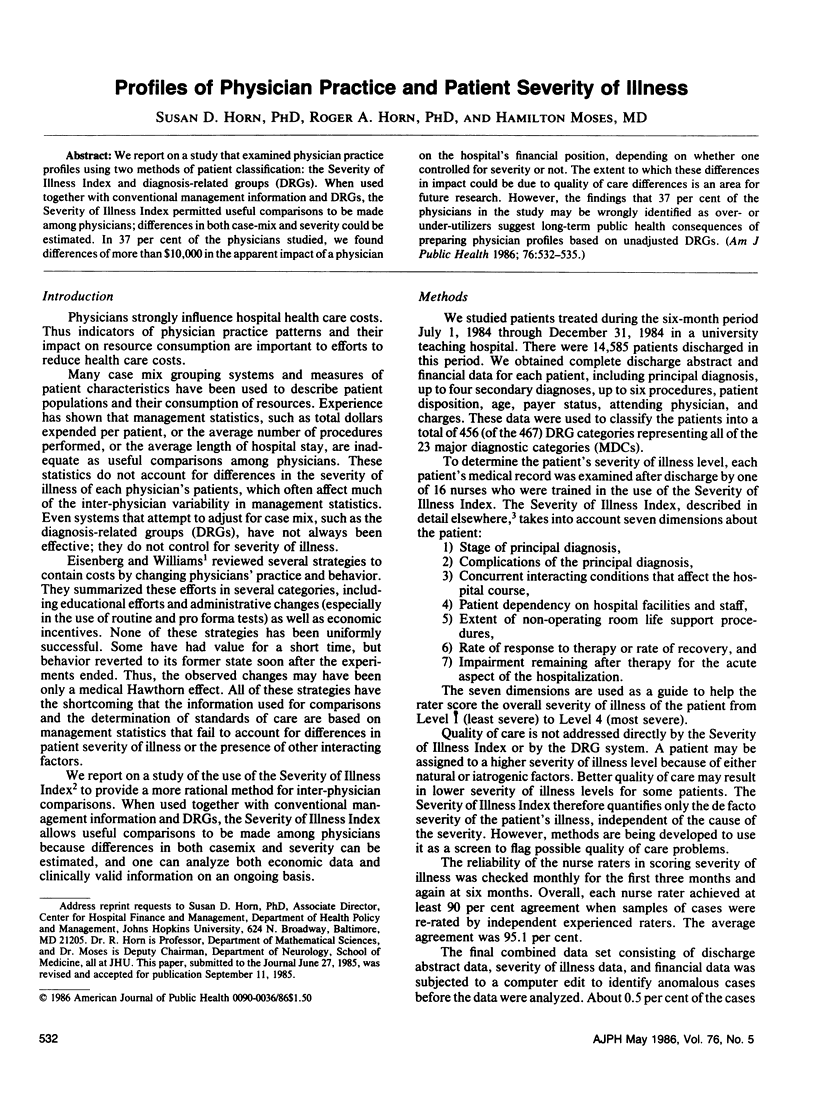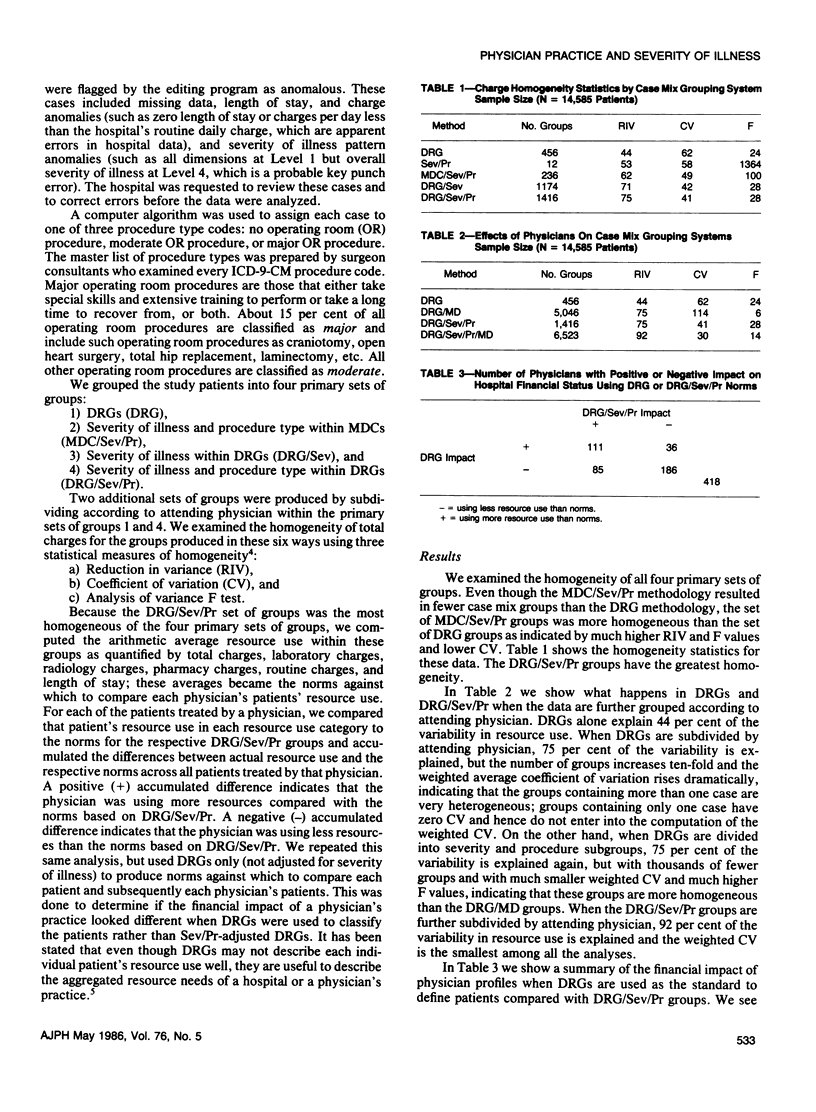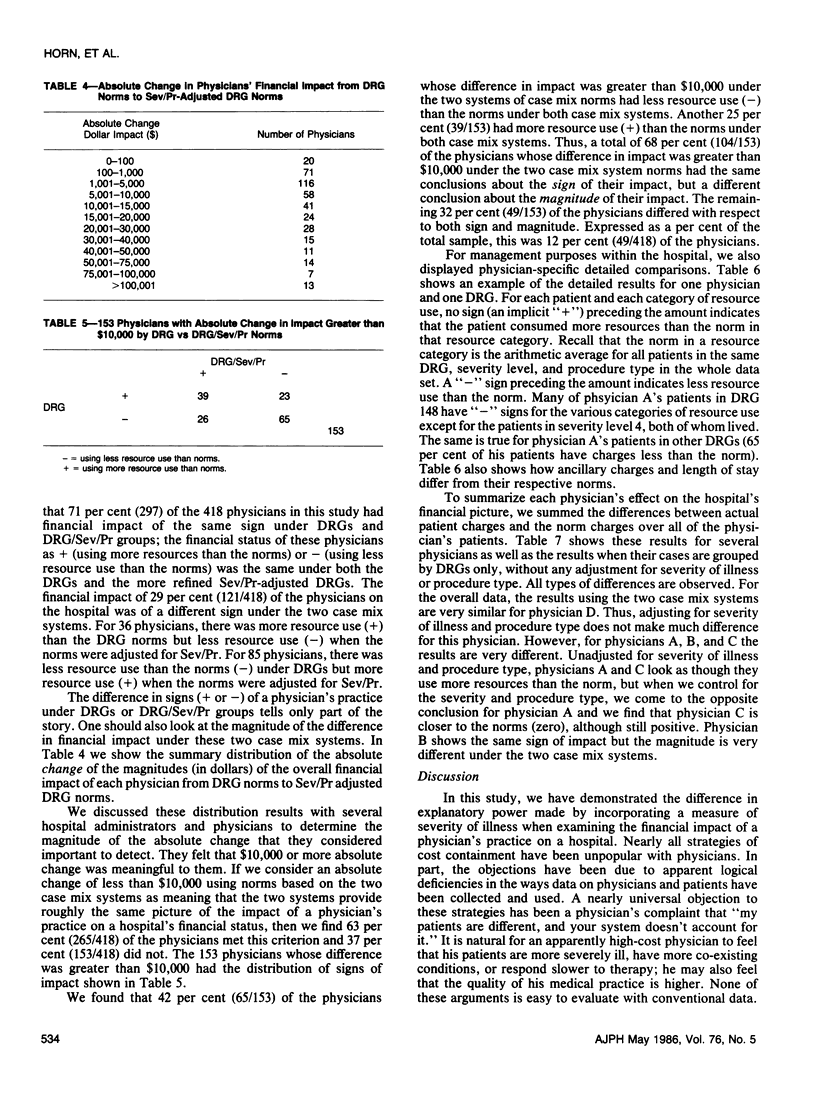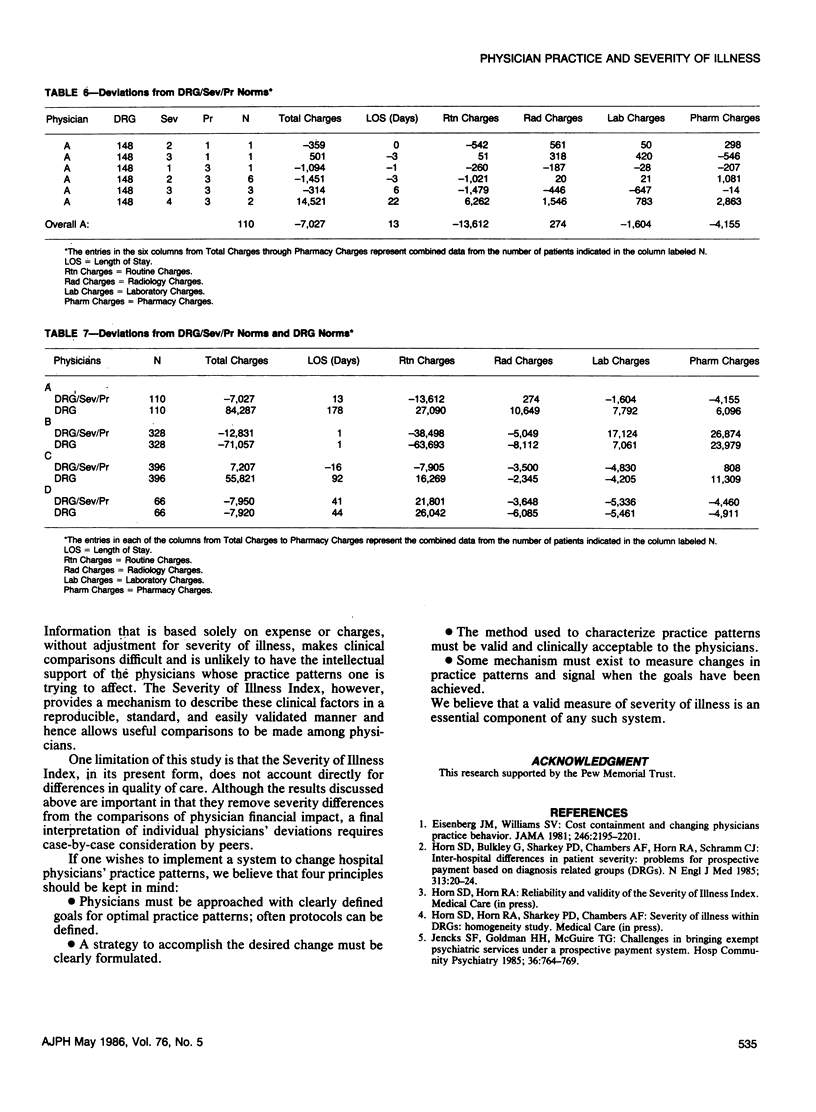Abstract
We report on a study that examined physician practice profiles using two methods of patient classification: the Severity of Illness Index and diagnosis-related groups (DRGs). When used together with conventional management information and DRGs, the Severity of Illness Index permitted useful comparisons to be made among physicians; differences in both case-mix and severity could be estimated. In 37 per cent of the physicians studied, we found differences of more than $10,000 in the apparent impact of a physician on the hospital's financial position, depending on whether one controlled for severity or not. The extent to which these differences in impact could be due to quality of care differences is an area for future research. However, the findings that 37 per cent of the physicians in the study may be wrongly identified as over- or under-utilizers suggest long-term public health consequences of preparing physician profiles based on unadjusted DRGs.
Full text
PDF



Selected References
These references are in PubMed. This may not be the complete list of references from this article.
- Eisenberg J. M., Williams S. V. Cost containment and changing physicians' practice behavior. Can the fox learn to guard the chicken coop? JAMA. 1981 Nov 13;246(19):2195–2201. [PubMed] [Google Scholar]
- Horn S. D., Bulkley G., Sharkey P. D., Chambers A. F., Horn R. A., Schramm C. J. Interhospital differences in severity of illness. Problems for prospective payment based on diagnosis-related groups (DRGs). N Engl J Med. 1985 Jul 4;313(1):20–24. doi: 10.1056/NEJM198507043130105. [DOI] [PubMed] [Google Scholar]
- Jencks S. F., Goldman H. H., McGuire T. G. Challenges in bringing exempt psychiatric services under a prospective payment system. Hosp Community Psychiatry. 1985 Jul;36(7):764–769. doi: 10.1176/ps.36.7.764. [DOI] [PubMed] [Google Scholar]


